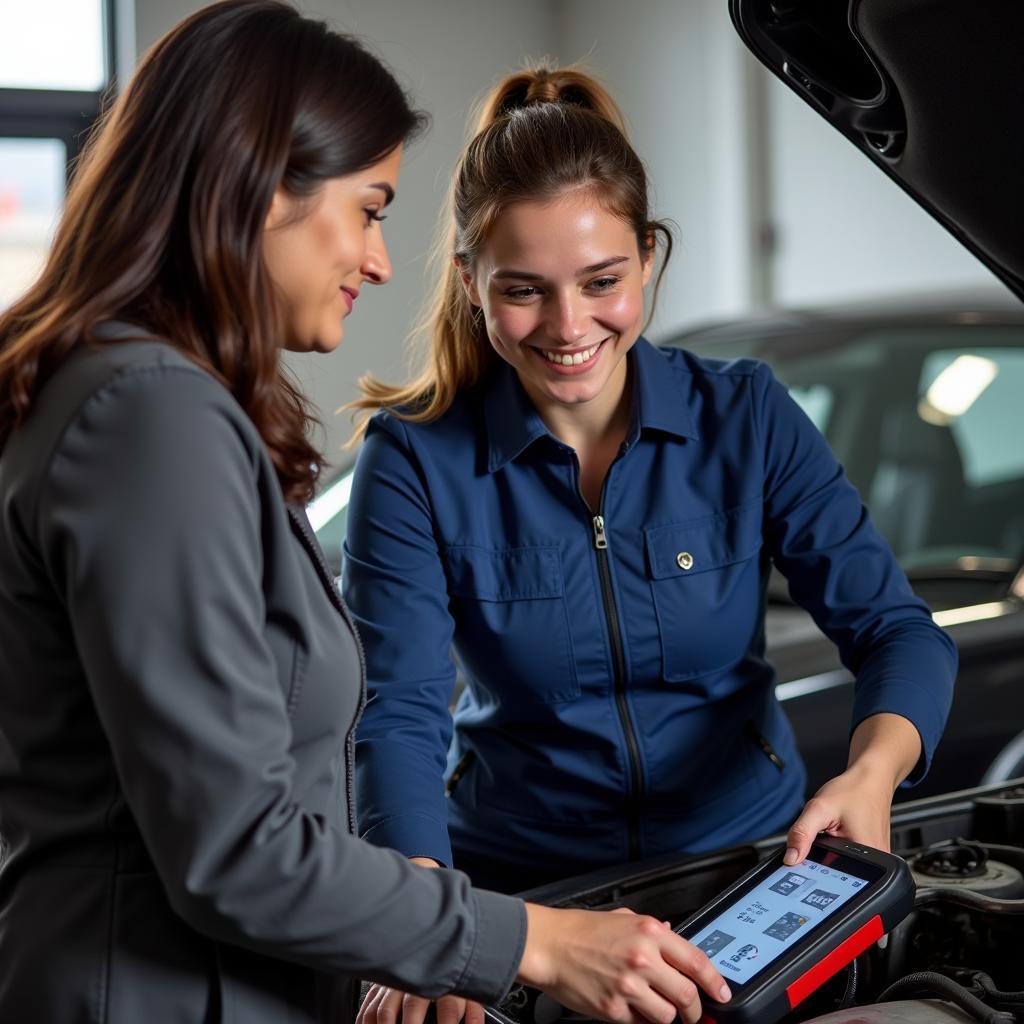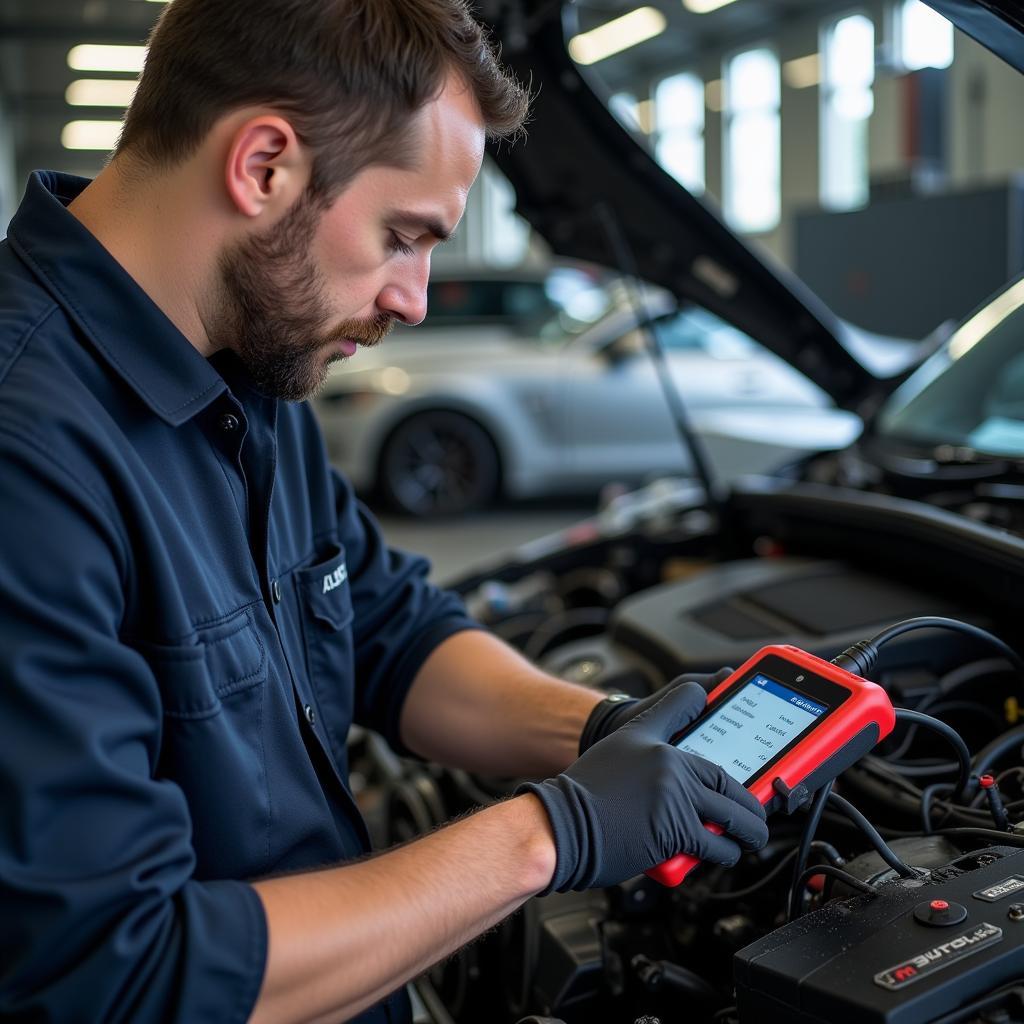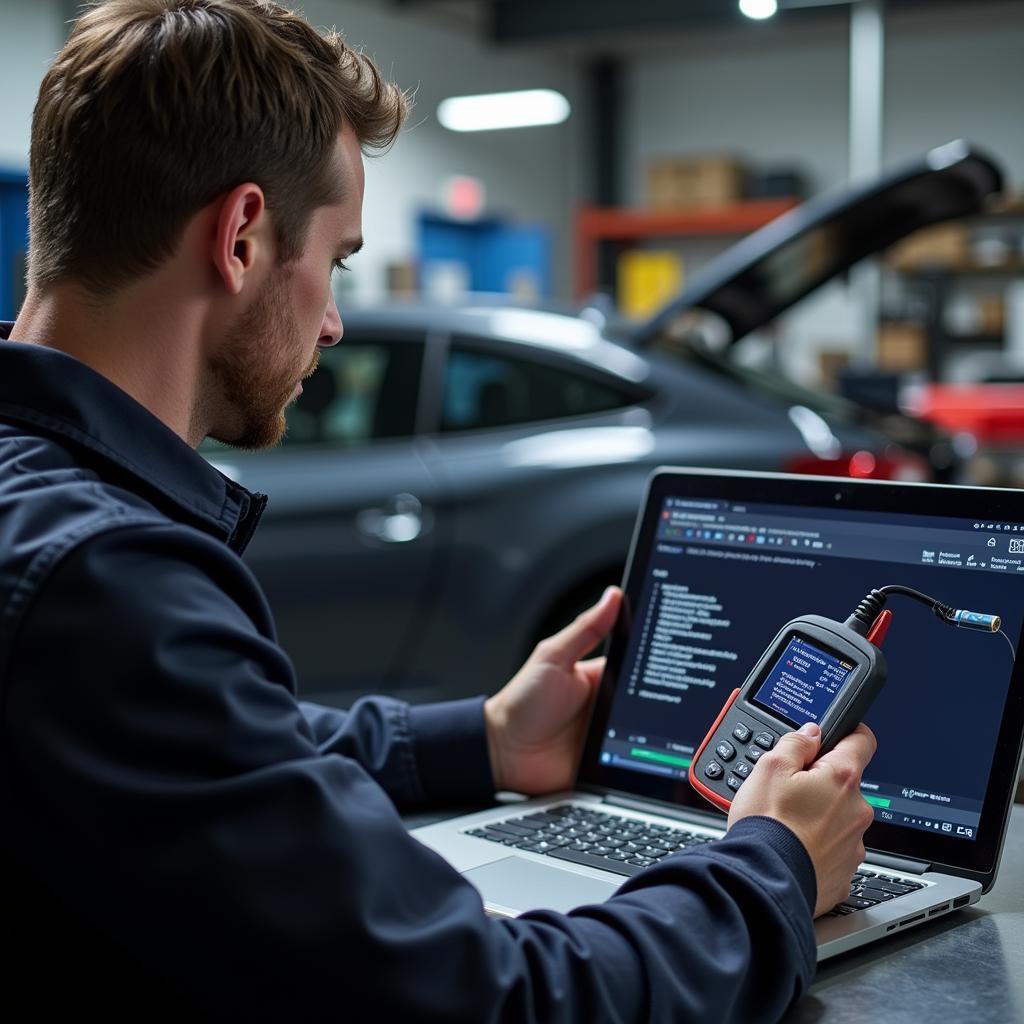Looking for the best car diagnostic tool but feeling overwhelmed by the sheer amount of options available? You’re not alone. The market is flooded with devices, each promising to be the ultimate solution for DIY car maintenance and repair. But which one truly lives up to the hype?
This guide cuts through the noise, providing expert insights to help you choose the perfect car diagnostic tool for your needs and budget. We’ll dive deep into the features, pros and cons, and real-world performance of the top contenders, so you can make an informed decision and get back on the road with confidence.
Understanding Your Needs: The First Step to Choosing a Car Diagnostic Tool
Before we explore the top recommendations, it’s crucial to understand your individual requirements. Ask yourself:
- What’s your skill level? Are you a complete beginner, a seasoned DIYer, or somewhere in between?
- What types of vehicles do you work on? Make, model, and year can influence the compatibility and functionality of diagnostic tools.
- What do you want to achieve? Are you looking to read and clear basic engine codes, or do you need advanced functionalities like live data streaming, ABS bleeding, or ECU programming?
- What’s your budget? Car diagnostic tools can range from affordable OBD2 scanners to professional-grade systems with hefty price tags.
 Best car diagnostic tool for beginners
Best car diagnostic tool for beginners
Once you have a clear understanding of your needs and budget, you can narrow down the options and choose a car diagnostic tool that aligns perfectly with your requirements.
Top Car Diagnostic Tool Recommendations for Every Skill Level and Budget
Here’s a breakdown of some of the best car diagnostic tools in the market, categorized by user experience:
For Beginners and Casual Users:
- ANCEL AD310: This budget-friendly OBD2 scanner is a great entry point for beginners. It reads and clears basic engine codes, provides definitions for common fault codes, and offers some additional features like emissions readiness checks.
- BlueDriver Bluetooth Scanner: This compact scanner pairs wirelessly with your smartphone or tablet, providing an intuitive interface for reading and clearing codes. The app offers detailed code definitions, repair reports, and even live data streaming.
For DIY Enthusiasts and Advanced Users:
- Autel MaxiCOM MK808: This mid-range diagnostic tool offers a wide range of functionalities, including advanced code reading and clearing, live data streaming, ABS bleeding, and some ECU programming capabilities. It features a user-friendly interface and a large touchscreen display for easy navigation.
- Launch CRP129X: Another popular choice among DIYers, the Launch CRP129X boasts a comprehensive set of features, including full OBD2 functions, ABS and SRS diagnostics, and battery voltage monitoring.
For Professional Mechanics and Workshops:
- Autel MaxiSys MS908S Pro: This professional-grade diagnostic tool is a powerhouse, offering unmatched coverage for a wide range of vehicle makes and models. It includes advanced functionalities like ECU programming, coding, key programming, and bi-directional control.
- Snap-on Solus Edge: Widely regarded as the industry standard, the Snap-on Solus Edge provides exceptional diagnostic capabilities, extensive vehicle coverage, and unparalleled support. It’s a significant investment but offers unparalleled performance and reliability for professional use.
 Professional-grade car diagnostic tool for workshops
Professional-grade car diagnostic tool for workshops
Key Features to Consider:
When choosing a car diagnostic tool, consider the following key features:
- Vehicle Coverage: Ensure the tool supports the make, model, and year of your vehicle(s).
- OBD2 Functions: All car diagnostic tools should offer basic OBD2 functions like reading and clearing engine codes.
- Live Data Streaming: This feature allows you to view real-time sensor data, providing valuable insights into your vehicle’s performance.
- ABS/SRS Diagnostics: Essential for diagnosing and troubleshooting issues with your vehicle’s braking and airbag systems.
- ECU Programming: This advanced function allows you to update or modify your vehicle’s control unit software.
- User Interface: A user-friendly interface with clear menus and intuitive navigation is crucial for ease of use.
- Software Updates: Regular software updates ensure compatibility with the latest vehicle models and diagnostic protocols.
- Support and Warranty: Look for a manufacturer that offers reliable customer support and a comprehensive warranty.
Beyond the Tool: Expert Tips for Effective Car Diagnostics
Choosing the right car diagnostic tool is just the first step. Here are some expert tips to maximize your diagnostic capabilities:
- Consult Reliable Resources: Use reputable online databases and forums to research error codes, understand their implications, and explore potential solutions.
- Start with the Basics: Before diving into advanced diagnostics, check for simple issues like loose connections, blown fuses, or faulty sensors.
- Combine Data with Observation: Don’t rely solely on the diagnostic tool. Combine the data with visual inspections and observations to get a comprehensive understanding of the issue.
- Know Your Limits: While car diagnostic tools empower DIYers, it’s essential to recognize your limitations. If you encounter a complex issue, don’t hesitate to seek professional help.
 Mechanic using a car diagnostic tool and a laptop
Mechanic using a car diagnostic tool and a laptop
Conclusion
Choosing the best car diagnostic tool can be a game-changer for DIY car maintenance and repair. By carefully considering your needs, understanding the key features, and following expert advice, you can make an informed decision that empowers you to take control of your vehicle’s health and save time and money in the long run.
FAQs
Q: Do I need a professional-grade diagnostic tool for basic DIY tasks?
A: No, budget-friendly OBD2 scanners are sufficient for reading and clearing basic engine codes, which is adequate for most DIY maintenance tasks.
Q: Can a car diagnostic tool fix problems on its own?
A: No, a diagnostic tool primarily helps you identify the root cause of a problem. You’ll still need to perform the necessary repairs or replacements.
Q: Are software updates for car diagnostic tools important?
A: Yes, regular software updates ensure compatibility with the latest vehicle models, diagnostic protocols, and security patches.
Q: What should I do if my diagnostic tool can’t read my car’s codes?
A: Double-check compatibility, ensure the tool is properly connected, and try restarting both the tool and your vehicle. If the issue persists, contact the manufacturer’s customer support.
Q: Can I use a car diagnostic tool on any vehicle?
A: While some tools offer wide vehicle coverage, it’s crucial to check compatibility with your specific make, model, and year before purchasing.
Need Help Choosing the Perfect Car Diagnostic Tool?
Our team of car diagnostic experts is here to help! Contact us via WhatsApp at +1(641)206-8880 or email us at [email protected] for personalized recommendations and 24/7 support.

Leave a Reply